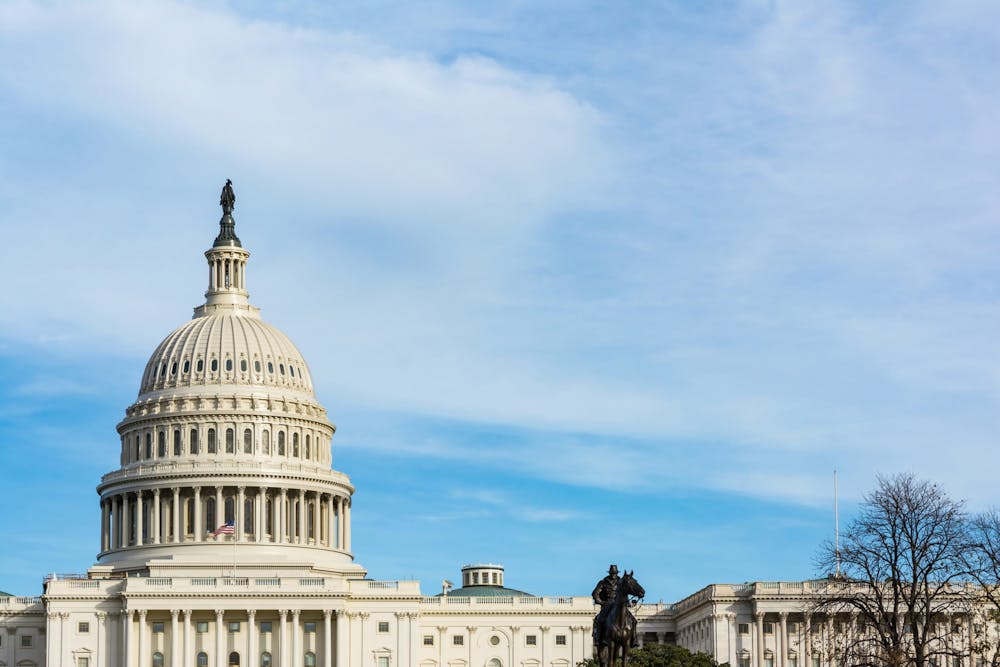Rep. Jim Banks, R-3rd District, of Indiana, proposed the “Support Peaceful Protest Act” to the U.S. House of Representatives on Aug. 28.
The bill would prevent individuals from receiving federal unemployment aid during the coronavirus pandemic if they have been convicted of a federal crime during a protest. Convicted protesters would also be required to pay for the cost of policing during the protest.
Mitchell Hailstone, Bank's communications director, said Banks wrote this bill and introduced it in August with the hope it would deter people from criminal activity. The goal is to have consequences for those arrested and convicted of illegal activity at protests or riots, he said.
“He feels if there are harsher penalties for those who are breaking the law, no matter what their motivation is, then that would help support the long standing tradition of American peaceful protests,” Hailstone said.
Hailstone said the sheriff in Portland, Oregon, complained about individuals at protests or riots being arrested for criminal activity and released by the district attorney the following day without consequence.
“Banks can’t do anything about Oregon’s policing, for example, but he can implement federal consequences for breaking the law,” Hailstone said.
Brent Weisberg, communications director for the Multnomah County District Attorney's Office, said the DA's office does not release anyone after being arrested. Many of the people booked into the Multnomah County Detention Center are release on their own recognizance or released on bail. Multnomah County oversees Portland.
The bill is not intended to support any one political cause, but rather help protestors to stay safe and protect small businesses or people’s livelihoods from being damaged, Hailstone said.
Hailstone said HouseSpeaker Nancy Pelosi does not share the same political ideas as Banks and does not expect the bill to make it to the floor for a vote. Pelosi has yet to offer any comment on the proposed bill, he said.
U.S. Sen. Tom Cotton, R-Ark., introduced this bill in the Senate, which means the bill could pass through the Senate and then come to the House instead of the other way around, Hailstone said. Both chambers of Congress would need to pass the bill in order for it to become law.
There is also a chance the White House could push the idea by adding it to future coronavirus relief bills, Hailstone said.
Three core council members of Black Lives Matter B-town said they believe this bill is a blatant attempt to control or curtail protests.
The members said they think this bill undermines American's constitutional right to peacefully protest because it attempts to have lawmakers define what is considered a peaceful protest and what is considered a riot.
The members said they believe no one should have to pay the cost of policing a demonstration as the bill would require. Protestors are already paying that cost through their tax dollars and should not have to pay for the flawed and broken system of policing, they said.
They said they feel the language of the bill itself is classist by assuming protestors are unemployed and would require federal unemployment aid in the first place.
They said this bill would supersede existing laws and likely will not be passed. But, if the bill were to be passed, there would likely be more violence and riots because people will always retaliate against unfair laws, the members said.
This story was updated at 1:30 p.m. Tuesday to include a statement from the Multnomah County District Attorney's Office.




